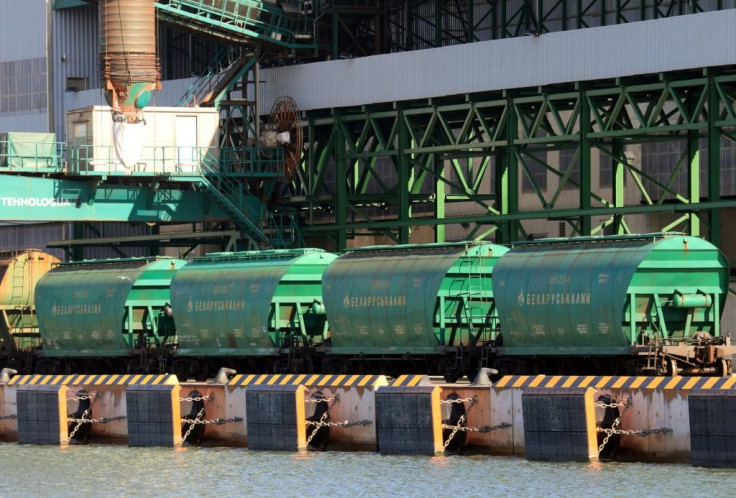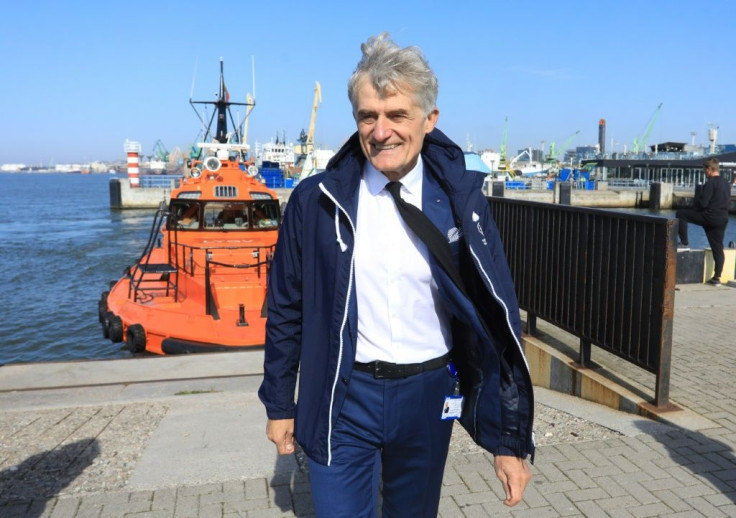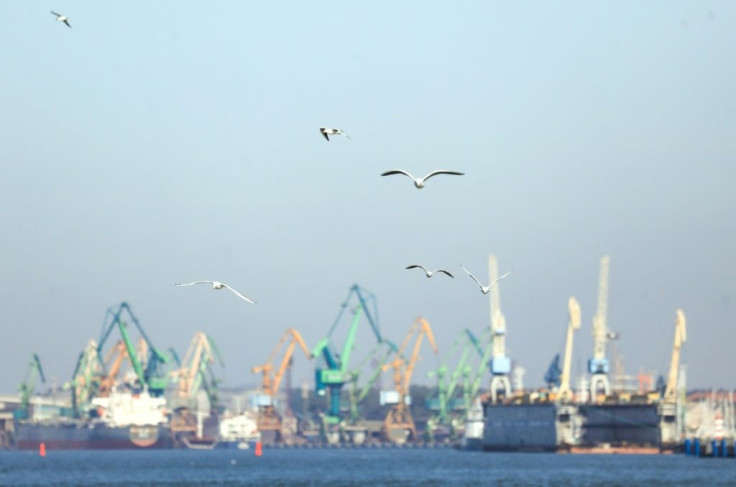Lithuanian Port Caught In Belarus Crossfire
A vital maritime trade hub for landlocked Belarus, the Lithuanian port of Klaipeda now faces economic fallout from the Baltic state's hard line against President Alexander Lukashenko.
The embattled Belarusian leader has threatened to re-route import and export cargo through Russian ports after Lithuania and its neighbours Estonia and Latvia last month imposed sanctions against him.
Their move came as the strongman staged brutal crackdowns against protesters who demanded that he step down following a disputed August 9 presidential election.
Klaipeda is the largest port in the Baltic states and handles more than 45 million tonnes of goods a year -- more than quarter of it from and to Belarus via Lithuanian rail.

"Belarusian cargo is very important for the port of Klaipeda," Algis Latakas, director general of the port, told AFP, standing near carriages and a ship loaded with Belarusian fertilizer.
Andrius Romanovskis, president of Lithuania's business confederation, said companies operating in Klaipeda were "very sensitive and are closely following" the latest news from Belarus.
"For some companies, it would mean quite a strong negative economic effect," he said.

Lukashenko, facing the biggest challenge to his 26-year rule, threatened to cut off the route through neighbouring Lithuania after Vilnius imposed sanctions for election fraud.
His tough talk has been backed up by Russia, his main ally that wants to divert oil shipments from Lithuanian to Russian ports.
Apart from oil products, Belarus also uses Klaipeda to export fertilizer from Belaruskali, the world's largest producer of potash.
Latakas said a boycott would be purely political and would make no sense economically.

"We think that in the near term, politically it may be possible but it would prove rather complicated practically because it needs technologies and a concerted logistics chain.
"Klaipeda is the closest location to Belarusian fertilizer factories, and since 2006 Belarusian cargo has mostly sailed to the rest of the world through Klaipeda," Latakas said.
He said the port and Lithuania's railways have not seen any changes so far except that Lithuanian truckers have reported more thorough checks at the land border in recent days.
Before the presidential election, Belarus had been using oil imports through Klaipeda -- including spot purchases from the United States and Saudi Arabia -- to reduce its reliance on Russia.
Since the vote and mass protests that ensued, the Belarusian government has changed tack as Lukashenko became heavily reliant on his single most important backer.
Russian Energy Minister Alexander Novak visited Minsk to raise the issue earlier this month, sparking speculation about an imminent deal.
"We need to create the economic conditions that will be beneficial to both sides," he said, voicing hope that a deal could be reached with Belarus by the end of the month.
Russian officials have said any Belarusian cargo could transit instead through the Russian Baltic Sea ports of Ust-Luga and Kaliningrad.
Even though this might be more expensive, some experts believe Moscow could be willing to compensate Belarus to get the cargo and punish EU and NATO member Lithuania.
Lithuania has particularly angered Minsk in recent weeks as it has been hosting opposition presidential candidate Svetlana Tikhanovskaya, who fled soon after claiming victory against Lukashenko and has inspired mass protests.
But Lithuanian President Gitanas Nauseda brushed aside the prospect of any impact if Belarus switches its trade to Russia, insisting that Belarus would not harm itself economically.
Earlier this month, he told AFP in an interview: "I do not want to speculate what is happening in the minds of these people but the economic reality is that Belarus benefits most from transporting its cargo through Klaipeda."
© Copyright AFP {{Year}}. All rights reserved.





















